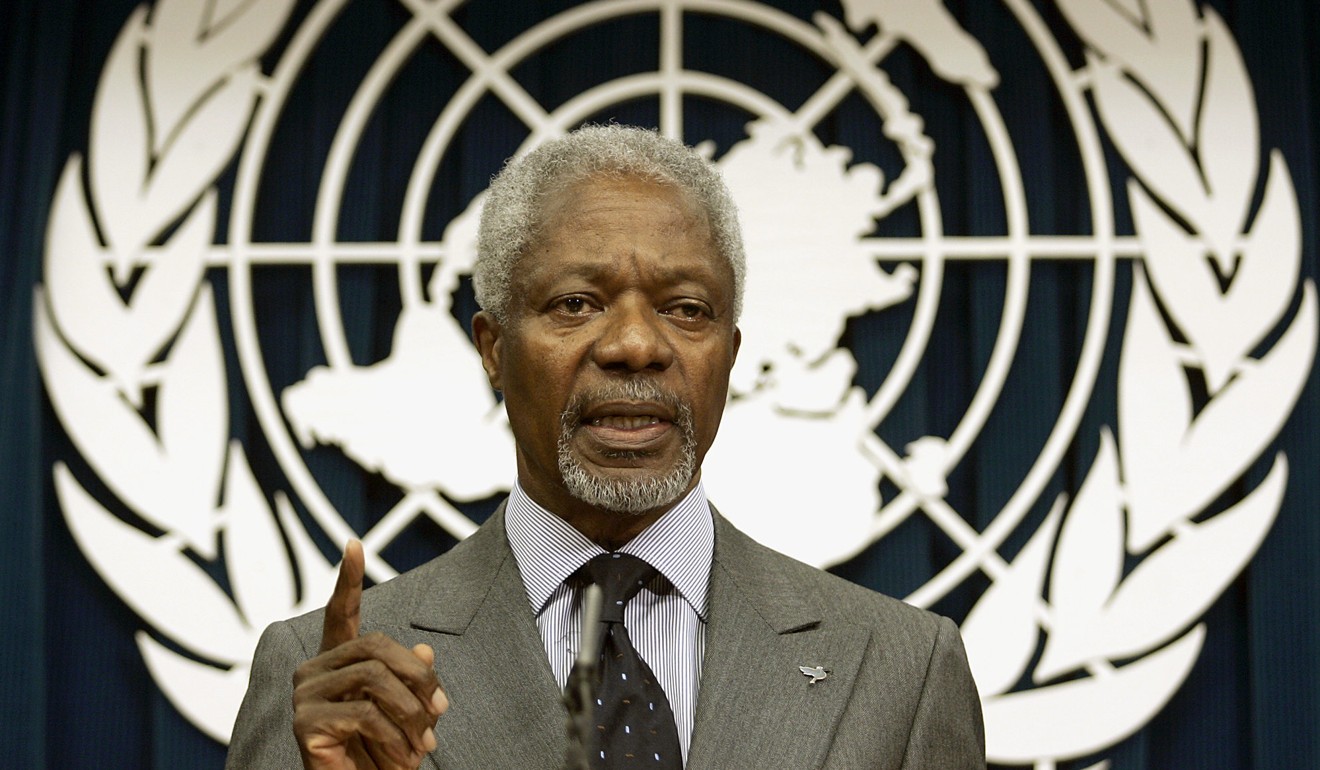WHEN the call came from an excited colleague at 4:58am New York time on October 12, 2001, telling me the United Nations, and my boss, Secretary-General Kofi Annan, had won the Nobel Prize for Peace, I had been lying awake for nearly an hour. It was a call I had been expecting, indeed hoping for – but for three years we had heard the same rumours, and twice they had proved untrue. So it was in a mixture of anticipation and dread that I tossed and turned that night.
Kofi Annan himself, typically, had no such anxieties. He was sleeping soundly, untroubled by the prospect of either triumph or disappointment, when his spokesman woke him with the news.
“Given the sort of business we are in,” he later remarked, “usually when you get a call that early in the morning, it is something disastrous”, but it was “a wonderful way to wake up”.
There was no doubt the Nobel committee recognised the work of the thousands of unsung UN staff Annan led, striving anonymously behind the headlines – bearing the brunt of the outflow of Afghan refugees, waging the long and thankless battle to overcome poverty in Africa, fighting the scourge of HIV/Aids and other killer diseases, and patrolling the front lines in 16 peacekeeping operations around the world.

But it was also a tribute to the way the UN, under this remarkable leader, had become the one indispensable global organisation in our globalising world.
The man who brought the UN to the point of being worthy of the Nobel was unusual, first of all, for being the first to climb the ranks of the organisation from its lowest professional level to the very top. When Kofi Annan became Secretary-General at the beginning of 1997, he had not been a global figure like some previous contenders for the post; those who made it their business to follow the UN knew his résumé, but not his biography.
Rohingya crisis: terrorism may spread beyond Myanmar, Suu Kyi warns
Of his popularity with the staff there was no doubt: the jubilation in the corridors and offices of the UN Secretariat when the news of his election was first announced had to be seen to be believed.
For UN officials beleaguered by ill-informed criticism and beset by financial crises, anxious about the polemics surrounding the defenestration of the previous Secretary-General and crushed by the rapidity with which the post-cold war euphoria about a “new world order” had soured, the ascent of a man who knew their problems and their strengths was a shot in the arm.

But it was not the fact that he was an insider, nor even that he had worked for the UN in headquarters and the field across a remarkable range of areas – budget, personnel, refugees, and peacekeeping – that explained the continued exhilaration at the UN when he was re-elected to a second term in 2001, or the weeping, cheering throng that greeted him as he entered the Secretariat building after learning of his Nobel win.
It was something altogether simpler. Kofi Annan possessed that rare ingredient not always found in successful men: he was a wonderful human being.
Vietnam’s Catholics: cross with China, and all communists
Born into a family of traditional chiefs of the Fante tribe in Ghana, Kofi Annan became a student leader of note in the country. A scholarship brought him to college in the United States (and later in Geneva) and, unusually for a bureaucrat, he took a degree in management from the Massachusetts Institute
Source: https://www.scmp.com/week-asia/opinion/article/2161086/remembering-kofi-annan-man-rare-warmth-wit-an

